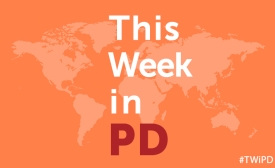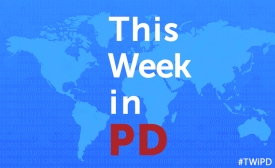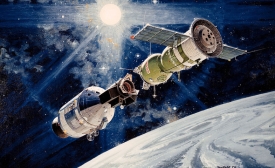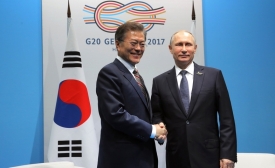science diplomacy

This Week in PD, we share international news on cultural diplomacy, science diplomacy, aid diplomacy and more.

This Week in PD, we share international news on development and aid diplomacy, cultural diplomacy, science diplomacy and more.
A new project aims to promote co-operation between biodiversity researchers across the UK and six Latin American countries. Funded by the British Council’s Newton Fund and in partnership with the São Paulo Research Foundation (FAPESP), Researcher Links aims to enhance scientific collaboration by promoting an international exchange of researchers between universities in UK, Mexico, Colombia, Chile, Peru, Argentina and Brazil.
Because of ASTP, not the Watergate scandal, Nixon’s name is well remembered in Russia where everything related to space technology and reaching space is a matter of national pride. During the Cold War, the mutual demonization of both major powers towards one another was transformed into friendship and partnership, even for a short time.

Olga Krasnyak looks at Nixon's presidency through the lens of space cooperation with the USSR.

Olga Krasnyak on how understanding different diplomatic styles is essential to creating a solid relationship.
South Korean—Russian space cooperation is an important landmark in the South Korean contemporary quest to become a global space power. The success of several joint space projects was possible due to cooperation with Russia, an unusual and unlikely partner considering South Korea’s historically close ties to the United States. In view of the circumstances and specifics of such ambitious projects, we look at South Korean—Russian space cooperation through the lens of science diplomacy, distinguishing national diplomatic styles in particular.







